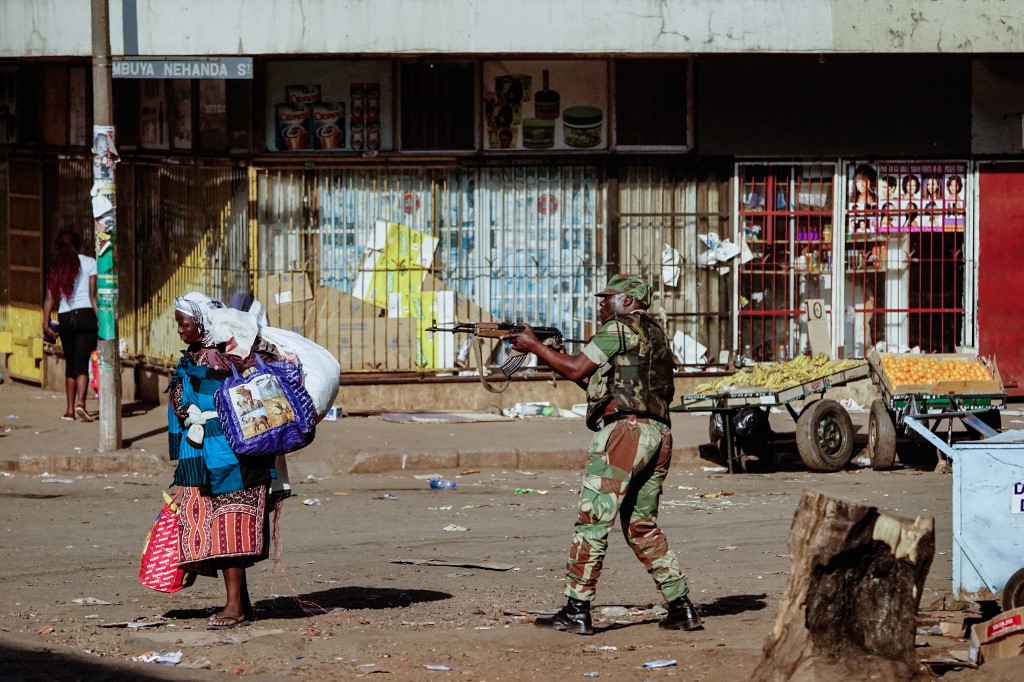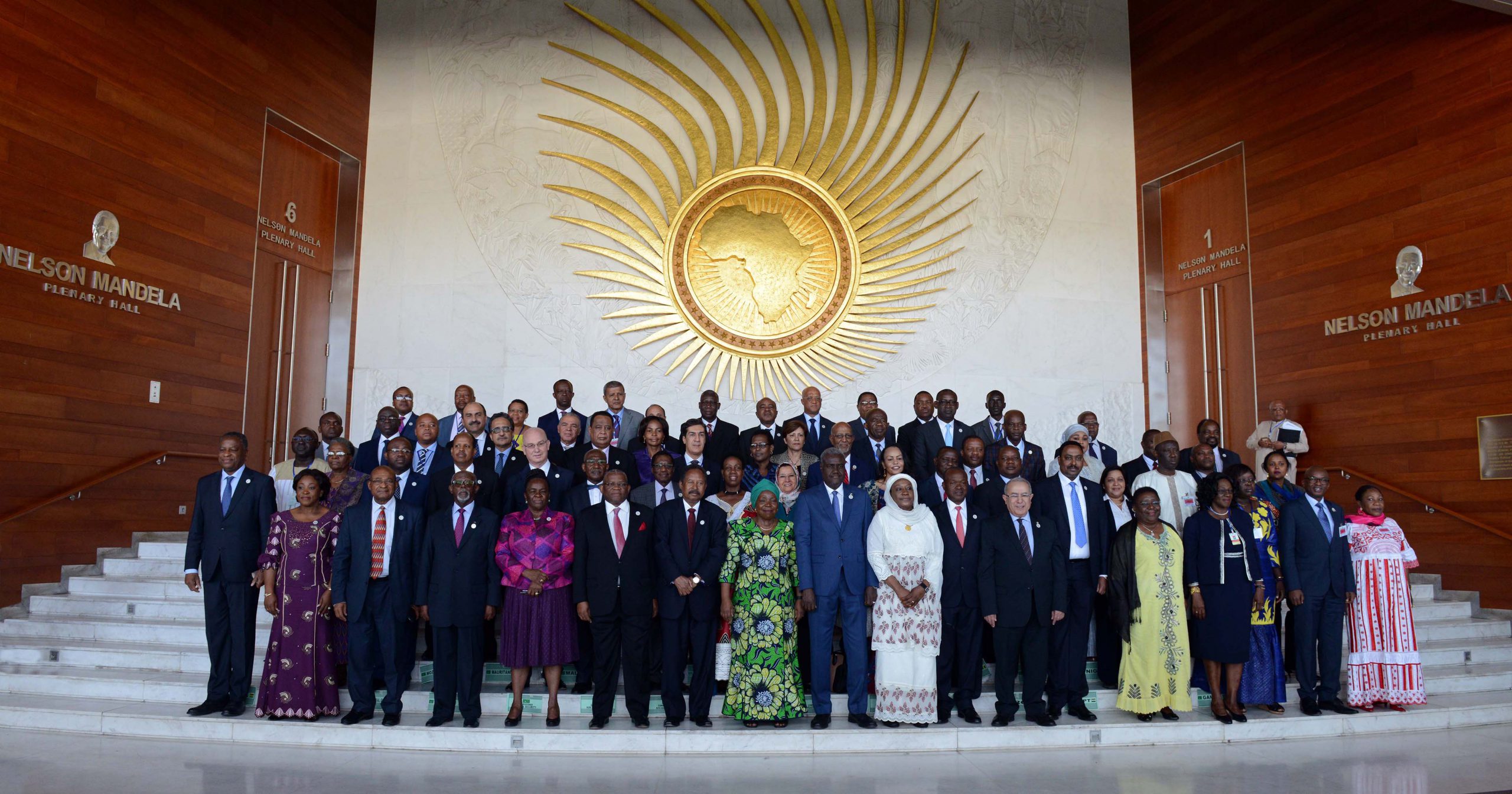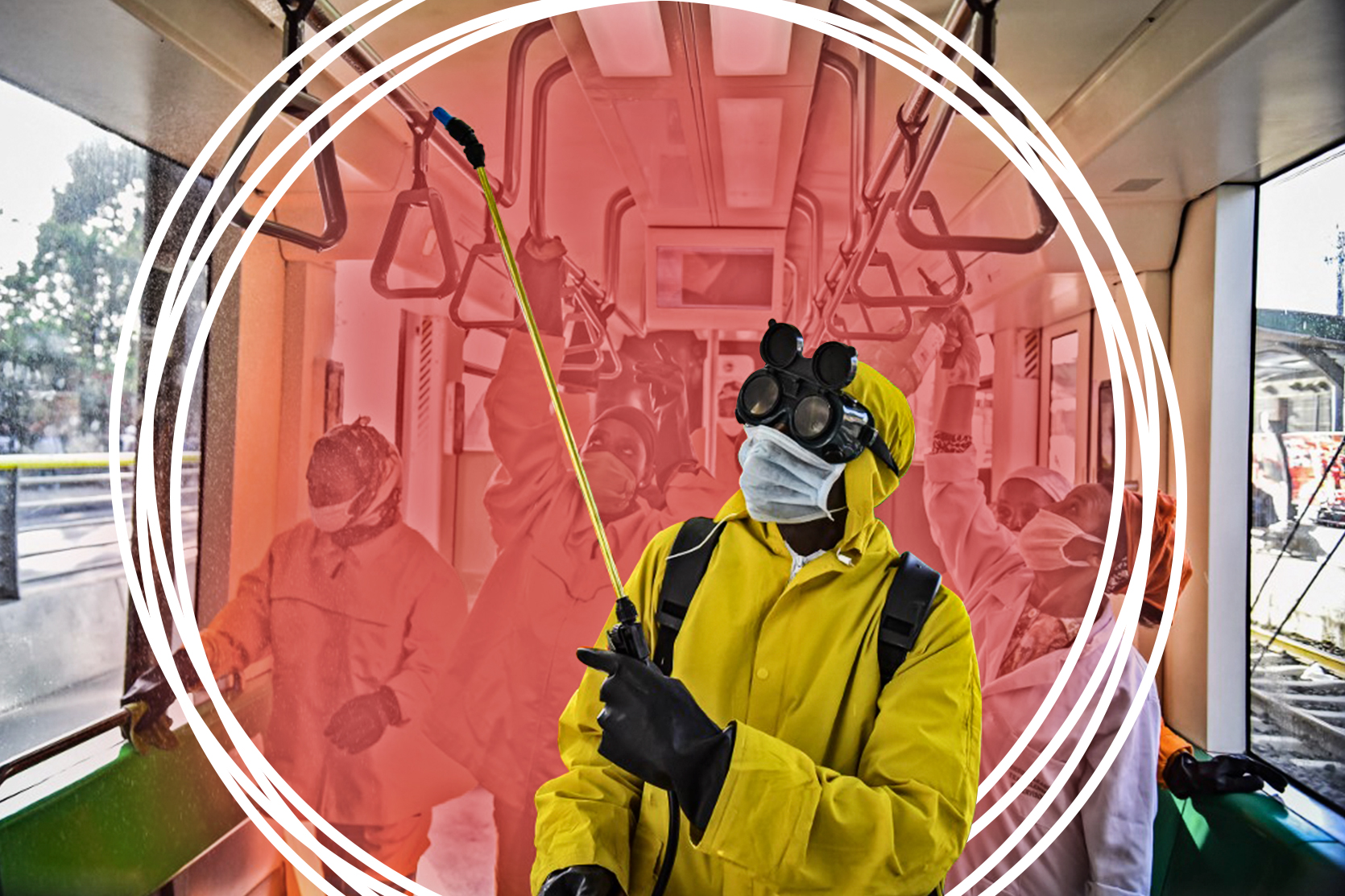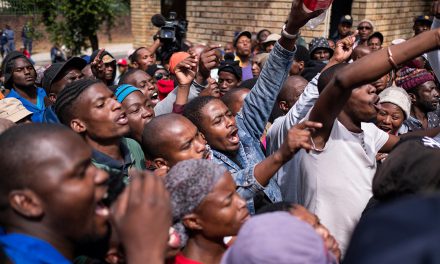The crisis in Zimbabwe: A paradigm shift
ABSTRACT
The discussion on the crisis in Zimbabwe has over the years been premised on the false expectation that a state increasingly based and surviving on the strength of a military-security machinery can reform itself out of power. What is required now is an acknowledgement, and a consensus at the national, regional and global levels, that the crisis, one almost similar to that which was resolved almost 40 years ago through the Lancaster House Conference in 1979, has to be confronted and resolved through the agency of consultations. Now, as was the case in 1979, Zimbabwe is a serious cause of regional instability. This process must be initiated at the national level, facilitated by South Africa and SADC and the AU, and scaffolded by the UK, EU, USA, Russia, China and the Commonwealth – leading to an international conference on Zimbabwe.
INTRODUCTION: THE LIMITED UTILITY OF SANCTIONS PREMISED ON AN EXPECTATION OF THE IMPOSSIBLE
It is now two decades since the sanctions regime was imposed by the USA in 2001 and by the EU in 2002. And in December 2003, Mugabe quit the Commonwealth over the decision of the latter body to extend sanctions for “undemocratic behaviour”. All this was done with the expectation that the State in Zimbabwe would reform, improve its human rights record and adhere to the standards required for free, fair and credible elections. The record so far is that things have since got worse, with little or no hope for reform.
The (vain) expectations that the November 2017 coup would redeem Zimbabwe from international isolation – under the “Zimbabwe is Open for Business” mantra – has all but gone up in smoke. The resounding consensus, even on the part of those in the global north who supported and/or warmed up to the coup three years ago, is that the State in Zimbabwe has not only failed to institute political and economic reforms, but is also “responsible for the worst human rights violations…, in 2018 and 2019, including the killing of 23 innocent people” (UK Foreign Secretary Dominic Raab). Thus, the UK announced its first set of designations under the country’s Zimbabwe sanctions regime, ahead of the EU (of which it is no longer a member). They subsequently, on 19 February 2021, renewed their arms embargo and assets freeze against the Zimbabwe Defence Industries (ZDI), citing “a lack of substantial reforms and continued human rights violations in the Southern African nation”, based “also on the need to investigate the role of the security forces in human rights abuses.”
More recently, on 24 February 2021, the Minister of State for the Foreign Commonwealth and Development Office in the UK, Lord Ahmed, threatened new measures against Zimbabwe. He stated that the former colonial power was “deeply worried about the state of the Zimbabwean economy, which continues to face unprecedented challenges largely due to corruption, and poor fiscal policies and economic mismanagement by the Government”.
Citing the recent report on the Cartels in Zimbabwe, the Minister said there would be more pressure on the country, in addition to the sanctions already announced on 1 February 2021. “These measures (sanctions) will be maintained as long as the situation on the ground justifies them … We will continue to look at how all the tools available to the UK, including the full range of sanctions regimes, can be used to encourage accountability and reform in Zimbabwe,” said Lord Ahmed.

A vendor scurries for cover with her wares as soldiers disperse demonstrators on August 1 2018, in Harare, after protests erupted over alleged fraud in the country’s election. Photo: Zinyange Auntony/AFP
Across the Atlantic, the new Biden administration is expected to up the ante against the regime in Harare. Speaking at a virtual SAPES Trust Policy Dialogue Forum (on the topic “What will the Biden Presidency mean for USA-Zimbabwe Relations?”) on 21 January 2021, former deputy assistant secretary for African Affairs at the US State Department, Todd Moss, stated that, under Biden, sanctions would remain. He also pointed out that it was a waste of time for Mnangagwa’s administration to hire public relations firms to lobby on its behalf.
More than that, in a statement which inadvertently acknowledged the extent to which targeted sanctions have in effect impacted on the financial and economic spheres of Zimbabwe, Todd Moss made it clear that the USA has effectively put a brake on whatever such international financial institutions as the World Bank and IMF might wish to lend to the country; and would continue to do so given the prevailing political and economic situation in Zimbabwe.
THE LEGACY OF ELUSIVE REFORMS: WHY THE REGIME IN HARARE IS BEREFT OF THE CAPACITY TO REFORM
As the moderator on that Policy Dialogue Forum, I raised the question of whether there has been any correlation between, on the one hand, the two decades of sanctions against Zimbabwe and, on the other, the intended objectives of having the regime in Harare move, even gradually and on the basis of some benchmarks, towards reform and respect for human rights. If the answer to that question is as obvious as the situation has been over the two decades, during which things have increasingly deteriorated, does the sanctions regime not amount to a hollow commitment to principle, an end in itself, and therefore bordering on insincerity on the part of the global North in its purported campaign for a better Zimbabwe?
Surely, it should be obvious by now that it is not that the regime in Harare does not want to reform; quite the contrary, they cannot do so without reforming themselves out of power! To quote former minister Jonathan Moyo as he addressed the Bulawayo Press Club on 2 September 2016, and reported in The Chronicle newspaper on 6 September under a headline, “ZANU PF will never reform itself out of power, Prof Moyo declares”:
“ZANU PF has no intention of creating an environment that will ensure it loses elections … they want to say put in place electoral reforms that will ensure that you lose and we win. And we are saying no … Because the reforms they’re talking about are clear codes to say come with the reforms that will ensure that you’re out …”
A statement made in apparent jest at the occasion, but nevertheless a remarkably accurate reflection of the securocrat state that Zimbabwe’s had increasingly become in the period since 2000. Therefore, the coup of November 2017 was an affirmation of the ZANU PF/ state’s inherent incapacity to transition towards a democratic dispensation. Hence the legacy of a self-fulfilling and, albeit, self-perpetuating process of political and economic crises. In turn, the persistent denials, on the part of the state actors, that there is a crisis in Zimbabwe, constitute almost an ideology, the surreal superstructure, designed to conceal an edifice that is beyond redemption, hurtling inexorably to the precipice. Unless and until the requisite and coordinated action, at the national, regional and international levels takes place. However, this has to begin with a move away from an insistence on reform as the condition for re-engagement towards an acknowledgement that the state in Zimbabwe is extremely bereft of the capacity to change without undoing itself.
At the political level, the factors should be obvious. For the state to implement fully the 2013 constitution would mean effectively a return to constitutionalism, the rule of law, the restoration of national institutions, the separation of powers in the form of an accountable executive, a vibrant legislature, a fiercely independent judiciary, and the return of the military to the barracks. As all this would entail electoral reforms ipso facto, free and fair elections would almost definitely spell the end of ZANU PF as a ruling party, a fate it has so far forestalled through the dominant role of the military-security machinery. This machinery has, ever since 2000, turned every subsequent election into a war zone, including the coup of 2008 when Morgan Tsvangirai, and the MDC, were denied victory, and prevented from taking over power. It is commonplace now that 2008 was a coup, publicly acknowledged by party and state stalwarts since then.
A state that survives only on the strength of the military- security machinery cannot afford a democratic dispensation. Invariably, the abuse of human rights, such killings as happened on 1 August 2018 and January 2019, the abductions (118 such since the coup in 2017), arbitrary arrests of political opponents, decimation of the formal opposition, recall of legitimately elected parliamentarians, a compromised judiciary, etc., all become integral to the architecture and paraphernalia of a securocratic state.
At the economic and social levels, the factors militating against reform are derived largely from the political pathology of a state such as Zimbabwe’s. Overall, it is difficult to imagine how Zimbabwe’s economy can be reformed effectively given both the nature of such a state and the rampant corruption fuelled by an insecure leadership so uncertain of its own tomorrow. Therefore, with no tangible plan ensuring that the proceeds from the country’s rich extractive sector are invested at home and not spirited abroad on the back of cartels that now dominate the towering heights of the economy. The extent of the corruption in the extractive and all other sectors is covered in detail in the Cartels report. These are the very factors that inhibit the engagement of the global economy of which Zimbabwe is an integral part, but without which involvement the country can neither reform effectively nor reach its fullest potential.
Engagement with the global economy would include access to lines of credit, possible debt relief, investment to increase production, address unemployment and grow wealth. Such a reform and re-engagement programme would attract the interest and resourcefulness of Zimbabwe’s Diaspora – in which 75% of all professional and skilled Zimbabweans reside – without which the county’s recovery and reconstruction programme would be incomplete. Besides, the necessary involvement of the Diaspora in this regard will assist in addressing the chronic leadership deficit across the society, and strengthen both civil society and the economy into which they are contributing, in official figures, more than $1 billion per annum in remittances.
TOWARDS A NEW STRATEGY FOR THE RESOLUTION OF THE CRISIS IN ZIMBABWE
So, here is to propose that we move away from the two decades-old and futile refrain of insisting on reform as a condition precedent for re-engagement, to one which acknowledges that the state in Zimbabwe is inherently and fundamentally incapable of such a reform agenda without undoing itself. Therefore, there is need for a new strategy that confronts and addresses the crisis head-on through the following:
- National dialogue: Based on an honest acknowledgement of the issues raised above. If so, then the urgent need to take stock of the various attempts so far at a national dialogue, understand why they have not achieved their objective, and make an honest assessment on the basis of which to re-strategize. But this requires a consensus among civil society groups- the Church, NGOs, academia, media, labour and the Diaspora – in the first instance. To state the least, the false start by the National Convergence Platform (NCP), launched with much fanfare in December 2019, was largely due to the lack of a consensus about the nature of the state in Zimbabwe, the goals and objectives of the national dialogue process, not to mention the pandering, on the part of some, to the whims and fancies of the “national dialogue industry”.
- Regional Initiative: Led by South Africa but multilateral and involving SADC and the AU; and in conjunction with factors in the international sphere, the UK and the EU, the USA, China and Russia, and the Commonwealth. President Cyril Ramaphosa should revive the initiative (on Zimbabwe) which appears to have stalled mainly because of the COVID-19 pandemic. The next few weeks and months should witness a more concerted effort at confronting the crisis in Zimbabwe, beginning with behind-the-scenes consultations with both state and non-state actors in Zimbabwe, identifying a Mediation Team to lead the process, and drawing a road map towards an International Conference on the crisis in Zimbabwe. The process towards the formation of a Mediation Team, composed of eminent persons drawn from the region, the continent and the international community, should begin as soon as part of the preparation for the International Conference.
- International scaffolding of a national and regional initiative: This has to begin with a consensus among the factors in the global sphere of influence, that it is futile to expect the regime in Harare to institute a viable reform agenda on the political and economic front. The UK, EU and USA have been the main global interlocuters on Zimbabwe over the decades, but it is important that the Commonwealth – especially Australia, India and Canada – resumes its historic role on Zimbabwe. It would be ideal to have the International Conference on Zimbabwe chaired by an eminent person from one of the Commonwealth countries.
With respect to the political parties, the issues have been more complicated, not least by the unprecedented and ultimately senseless campaign by the ZANU PF-led state that appears to believe that dialogue (POLAD) means compromising, dividing and even decimation of the (formal) opposition in Zimbabwe. This has in turn polarised the political environment, between ZANU PF and the MDC alliance, within the MDC as a whole, and even between the factions within the ruling party itself. Meantime, the opposition forces, constituting easily the largest proportion of the country’s population, remain in suspense, rudderless and crying out for an organized leadership. The spectre of a securocratic state stares at us, bereft of a political and social base, alienated from the people, and hanging on a thread. Hardly three years away from the next election in 2023, can this reality scare us from having history repeat itself?
For obvious reasons already stated in the forgoing, there will be no electoral reforms under this regime: none at all, as long as the imperatives of the securocrat state remain alive. So why are the merchants (and their funding agencies) of the “election industry” getting all excited instead of confronting the reality so well-known and exposed like never before? These are some of the questions and issues to constitute a reasonable agenda for a new strategy towards a viable national dialogue, including the issue of a National Transitional Authority (NTA) or something similar, as the basis of resolving the crisis in Zimbabwe.
CONCLUSION
The process of consultations that must necessarily precede and feed into an International Conference on Zimbabwe will have to begin at the national level, under a representative group- the National Consensus Committee- drawn from civil society (Church, business, academia, labour, media, NGOs, the Diaspora etc.) and the representatives of the political parties. The National Consensus Committee so composed would then engage and liaise with the regional and international factors towards the establishment of the Mediation Team that will convene and conduct the conference. Such consultations would also include a discussion of the items that should be placed on the agenda of the Conference. Inevitably, these would include the following:
- Return to constitutionalism (including the implementation of the 2013 constitution), the rule of law and the return of the military to the barracks.
- Restoration of the national institutions, including reform of the judiciary and the public service.
- Transitional justice, Truth and Reconciliation, including Amnesty arrangements attendant.
- Economic Reform and Reconstruction Programme, including the return of looted resources, Debt Relief and the establishment of the Zimbabwe Reconstruction and Development Fund.
- Establishment of a Transitional Authority through which to implement the above before any election is held.
This is an incredibly delicate exercise and process, requiring patience and selfless commitment on the part of the National Consensus Committee, with the facilitation of South Africa, SADC and the AU, and the requisite scaffolding by the UK, EU, USA, China, Russia and the Commonwealth.
Ibbo Mandaza is a Zimbabwean academic, author and publisher. He holds a Doctorate of Philosophy (D.Phil) in Political Economy from the University of York in England (1979) and taught at the Universities of Botswana, Zambia, Dar re Salaam and Zimbabwe (part-time). He has researched and written extensively on issues of governance, international relations and public policy; and was one of the first senior African Civil Servants in post-independent Zimbabwe (1980-1990), having been a member of the (Zimbabwe) National Liberation Movement, in the Department of Research, Education and Manpower, ZANU Headquarters, Maputo, Mozambique. He served as Director of the National Manpower Survey and Permanent Secretary in the Ministry of Manpower Planning and Development; as Deputy Chairman of the Public Service Commission and Member of the Defence Forces Commission; and finally as Chairman of the Parastatals Commission, before his early retirement from the Civil Service in July 1990 at the age of 42.
Ibbo Mandaza was Chairman of the Board of Directors of the second largest tourism and hotel group (Rainbow Tourism Group) in Zimbabwe from 1992 to 2009
Ibbo Mandaza is currently Executive Chairman of the Southern African Political Economy Series (SAPES) Trust, a regional Think Tank and Convenor of the Policy Dialogue Forum.








